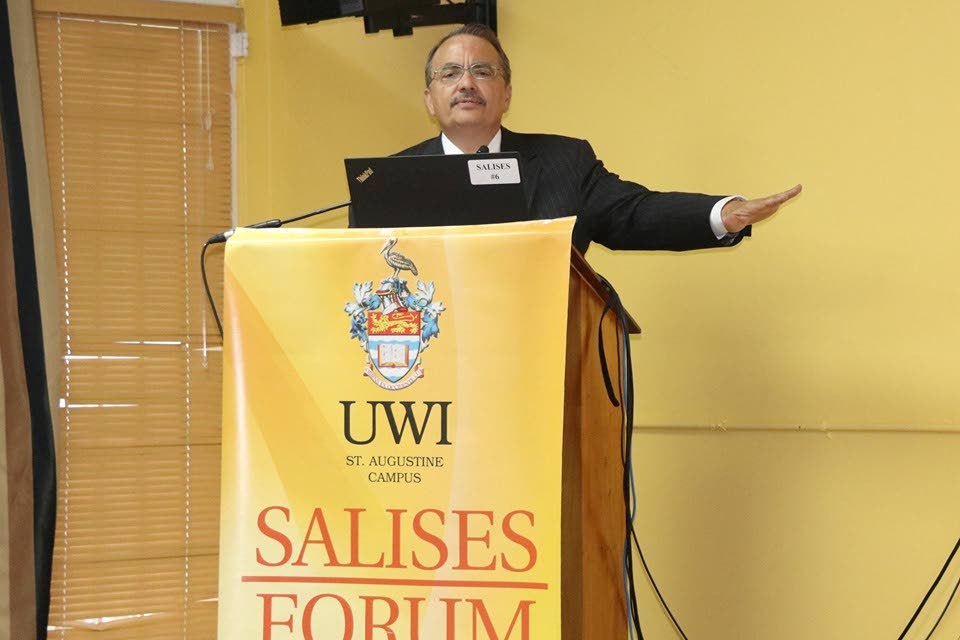Maduro govt won't survive

The crisis in Venezuela will only get worse before it gets better.
Venezuelan president Nicolas Maduro will not step down willingly, nor will he be persuaded to do so for moral reasons. He holds all the cards, like military force and weapons, and the only way he will resign is if the democratic nations of the world stand together to put financial pressure on his government.
This is the opinion of Jose Cardenas, political analyst and expert in Latin American and Caribbean relations with the United States.
He said despite Maduro’s advantages, his government would not survive. “I don’t know if it’s going to be next week, I don’t know if its going to be in six months, a year from now, but there is going to be a change in Venezuela simply because what is happening in this is not sustainable – the absolute, unprecedented collapse of an entire country in the western hemisphere.”
“They can’t find food, they can’t get medical care, they are seeing the return of diseases that were thought to have been eradicated and have been eradicated in most of the hemisphere.”
Cardenas noted that Maduro’s allies were China, Cuba, Iran, Russia, Syria, and Turkey while 55 democratic countries recognised Venezuelan opposition leader, Juan Guaido, as the interim president. He believed all Caricom countries and the English-speaking Caribbean belonged with the 55 democracies that support Guaidó.
“The English-speaking Caribbean has a stellar and quite justified history of respect for democracy and self-representation. And to take a step back and not align with the protection and defence of democratic institutions I think, is a mistake.”
He said several governments in the English-speaking Caribbean – St Lucia, Haiti, Jamaica, and the Bahamas – were clear in their support Guaido and they were invited to a mini-summit with US president Donald Trump.
“In my estimation, it’s not going to be like the US punishes countries for remaining neutral but I think that those countries that do make a choice and stand with the 55 other democracies will benefit with the US because the US will remember and the Venezuelan people will remember who stood with them in their darkest hours.”
He admitted that historically TT had a good relationship with Venezuela but believed the countries’ future relationship would suffer, although he could not say to what extent, when the Venezuelan democracy recovered.
Cardenas said while he did not speak for the Pentagon, based on his observations, talking to people in the US government, and sensing the political appetite in Washington, there was little interest in a broad-based US invasion of Venezuela.
He said the Trump administration’s statements that “all options are on the table” was “standard crisis management policy.” He said it prevented Maduro from knowing exactly what the US government had planned, and the possibility of military interference sent a message to Maduro not to do anything “egregiously stupid” such as harming US citizens or provoking an attack on Colombia which was hosting a great number of Venezuelan refugees.
Even that, he said, may result in a “limited military response” to evacuate US citizens or to assist Colombia.
Cardenas noted that Maduro government members announced they were starting talks about ending the crisis in Norway. “History shows, experience demonstrates clearly that the Maduro government is not going to negotiate in good faith (without) significant pressure. The opposition in the negotiations, all they have is their belief in themselves.”
He said Maduro had the upper hand because he had the military force, weapons, his allies, and his “armed gangs in the streets,” so economic pressure was one of the few options available to the opposition.
“I think the continued isolation of the Maduro government is an imperative, also the economic pressure brought on by multilateral sanctions... I do believe there will be a reckoning and the sooner there is a broad, united, democratic front the better chances are going to be for a resolution.”
He said people wanted to blame the US for the suffering of the Venezuelan people but the economy was collapsing for years and sanctions were only enacted after Guaido assumed the role of interim president.
He believed many Venezuelans were willing to suffer to get the support of the international community to isolate Maduro’s regime and recover constitutional, democratic rule.
“It’s not so much about Juan Guaido the person. It is his position as the duly elected president of the National Assembly, the parliament, that, through the constitution, which is ironically the constitution that Hugo Chavez himself approved, when the presidency is determined to be no longer viable, the constitution says the president of the National Assembly can assume the title of interim president in the preparation for new elections.”
He said he did not know how the situation would be resolved but he did not believe Maduro would simply step down. Therefore, and as long as Maduro could count on democratic states being sympathetic to him and blocking multilateral declarations, he would continue to believe his regime could survive the crisis and prolong the suffering of the people of Venezuela.


Comments
"Maduro govt won't survive"